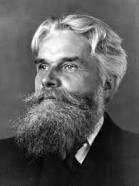 Found in a album of cuttings from various East Anglian newspapers in the early twentieth century is a review that appeared in The Leader, December 24th, 1906 of A Study of British Genius by the pioneer sexologist Havelock Ellis. The reviewer gleefully notes that East Anglia seems to have produced a high proportion of geniuses. To make his point he lists in order of greatness those English counties that have contributed most to the making of English men of genius. These were:
Found in a album of cuttings from various East Anglian newspapers in the early twentieth century is a review that appeared in The Leader, December 24th, 1906 of A Study of British Genius by the pioneer sexologist Havelock Ellis. The reviewer gleefully notes that East Anglia seems to have produced a high proportion of geniuses. To make his point he lists in order of greatness those English counties that have contributed most to the making of English men of genius. These were:
Norfolk
Suffolk
Hertfordshire
Warwickshire
Worcestershire
Herefordshire
Buckinghamshire
Cornwall
Dorsetshire
Oxfordshire
Shropshire
Ellis looked at the genius’s place of origin—that is, the district to which his four grandparents belonged. London as a birthplace was ignored altogether. This was because, where information was available, it was nearly always found that the parents had migrated to London. It rarely occurred that ‘even one grandparent belonged to London ‘.
‘ Omitting for the moment the individuals of mixed ancestry, Ellis continued, ‘ we find that 74.2 per cent are English, 3.1 Welsh, 15.4 Scotch , and 7.1 Irish ‘.
The reviewer goes on to say that, according to Ellis, there are three great foci of intellectual ability in England—the East Anglian focus, the south-western focus, and the focus of the Welsh Border. For the present purpose, the East Anglian focus includes not only Norfolk and Suffolk, but also the adjoining counties of Essex, Cambridgeshire and Hertfordshire.
Ellis offers a long list of ‘ men of genius ‘ from East Anglia, including the Bacons, Thomas Cavendish, Chaucer, Constable, Cowper, Cranmer, Flaxman, Gainsborough, the Lyttons, Nelson, Robert Walpole and Wolsey.
Ellis puts this flowering of genius down to immigration over the centuries:
‘…Brythons, Romans, Angles, and Normans all seem to have come here in large numbers; and it differs from every other English district ( except, to some extent, Kent, a county closely allied to it) in continuing to welcome foreigners —Dutch, Flemish, Walloon, French—all through medieval times, down to the revocation of the Edict of Nantes at the end of the 17th century.’
Ellis then considers the four countries of the British Isles in matters of scientific attainment. The Welsh score very low, with 2 points. In this country of eloquence and religious moralising ‘ there are no scientific men of the first order’. As for Scotland, it stands very high, although the genius of the nation has been mainly produced by the tract between the Cheviots and the Grampians, with Edinburgh and Aberdeen as significant centres. The Irish, Ellis avers, score ‘extremely low ‘in science, gaining a single point compared to England’s 84. Within England, again it is the East Anglians who perform very well in science, although they show ‘little or no mathematical aptitude’, being drawn to the concrete, rather than the abstract.
In other areas of attainment the Scottish have produced hardly any actors and actresses at all compared to the ‘ enormous ‘ contributions of the Irish. England has produced the greatest soldiers, and the West of the country the best sailors, with the exception of Nelson, who was born in Norfolk.
Ellis, with his active interest in psychology, is sound on the issue of madness among geniuses. Of the 1,030 geniuses studied a mere 4.2 % were mad at any time of their lives. So much for the ‘ mad genius’ paradigm. Ellis also discovers that many men of genius never married, or married late, producing no progeny. One thinks of Isaac Newton and Joseph Turner. Finally, and perhaps most importantly, ‘geniuses as a rule are either the firstborn or the youngest of the family; their parents are usually elderly, and the class from which they spring is that of the country gentleman, the yeoman and farmers, and, above all, clergymen ‘.
Reading the conclusions of Ellis today, it is easy to dismiss some of them as unscientific and politically incorrect. Where, for instance, are the women and why has he excluded those geniuses of mixed ancestry and race ? Also, by using as his source the DNB, he deliberately omits a number of neglected or underestimated individuals. But he had to start somewhere, and it must be admitted that many of his conclusions are broadly correct. [RR]
